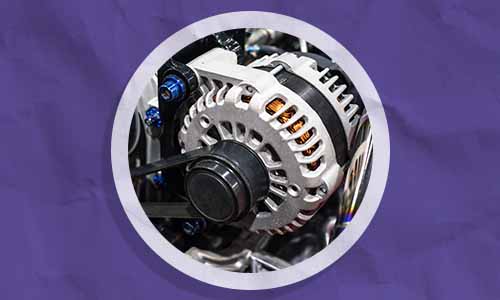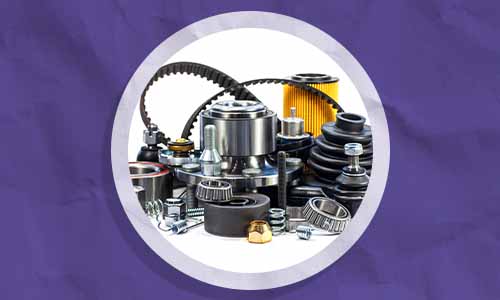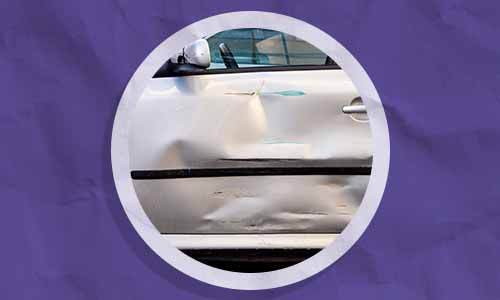Car rattling noises explained
Your car shouldn’t be making unusual sounds, so when it does, it’s only natural to feel concerned.
A rattling noise can evoke anything from mild irritation to a major panic, but either way, it’s important to find out what’s causing it. In this guide we’ll outline the most common sources of car rattling noises, when you’re likely to hear them, and what you can do to resolve them.
Get a free valuation
Common causes of rattling noises
When it comes to car rattling noises, there are three main culprits: loose exhaust system components, faulty suspension parts, and a broken catalytic converter.
If you’re hearing a rattling sound from under the car, it’s probably down to something in your exhaust system wearing out, working loose, or becoming misaligned.
For example, the brackets that hold all the major parts of the exhaust in place can wear out over time. Without the brackets to keep them secure, those exhaust components will start to shake about, eventually becoming loose and misaligned, creating those annoying noises. This can also happen if you hit bumps, potholes, or debris on the roads.
The heat shields surrounding the exhaust are another common cause of rattling. These thin pieces of metal are prone to rusting - and can start to work loose once the damage sets in, so you’ll likely hear them vibrating against the other parts of the exhaust.
Then, there’s the silencer; this contains different internal parts, which are designed to dampen down noise. However, if any of these become damaged, they can rattle around inside.
Rattling noises that mostly occur when you drive over speed bumps or potholes are likely to be suspension issues. Your suspension system has multiple components that can cause a cacophony when they wear out:
-
Bushings are major culprits, as their job is to reduce vibrations and friction, and keep metal parts – particularly control bars, shocks, and struts – from hitting each other. Without the bushings, those parts will rattle against each other and send vibrations through your car.
-
If the struts and shocks themselves wear out or break, they won’t be able to absorb impact any more, which means you’ll feel (and hear) every bump on the road.
-
Ball joints help your wheels move smoothly. So, when they work loose, they can also start rattling, particularly on rough roads.
-
Tie rods, which link the steering wheel to the wheels, can cause car rattling noises if they become loose.
Finally, if there’s a particularly loud rattling sound coming from underneath your car when you start the engine (and it gets worse every time you drive), this could be down to your catalytic converter.
These components are made of a metal or ceramic honeycomb structure coated with precious metals within a metal casing. When they get damaged, the internal honeycomb structure breaks into little pieces and clatters against the casing, which creates the noise.
Rattling noise from under the bonnet
Rattling sounds coming from under the bonnet are often caused by low engine oil levels, a failing water pump, or a broken serpentine (fan) belt:
-
Your engine needs enough oil to keep all the parts properly lubricated and moving together in a frictionless way. If the oil level falls too low, those parts will start rubbing together, causing a rattling noise.
-
If the noise is particularly noticeable when your car is idling, then the problem is likely to be a failing water pump or serpentine belt.
-
If the bearings in the pump start to wear out, the pump pulley will become unstable, causing the rattling noises.
-
If the belt starts to work loose or wear out, it will vibrate and rub against other components.
Rattling noise when accelerating
If you notice a rattling noise when you’re accelerating, there are a few other potential causes on top of those we mentioned above:
-
Broken/loose transmission or engine mounts are a common culprit, as they’re designed to keep everything in place. Once they wear out, components start moving around, causing rattling sounds.
-
Constant velocity (CV) joints tend to make more noise during acceleration if they’re damaged.
-
Low transmission fluid levels can also be a source of rattling.
-
Other possible causes include a failing gearbox, torque converter, or dual mass flywheel.
Rattling inside the car
This is probably the simplest issue to fix. Check all around inside your car (e.g. in the glove box, cup holder, door pockets, under the seats, on the floor, behind the front seats, and in the boot) for loose objects that could be moving around.
You’re likely to find the source of the annoying rattling noise quite quickly. Common culprits include:
-
A set of keys.
-
Small change.
-
A child’s toy.
-
A tin or drinks can.
-
A lipstick.
-
A screwdriver.
-
A conker, fir or pine cone.
-
Any other debris that’s ended up in your car.
If there’s nothing like that, then it might be something to do with the interior of the car itself. Thoroughly check the sunroof, window seals, air vents, stereo speakers - and anywhere else you suspect the noise may be coming from.
If you can’t spot anything, it’s a good idea to take a passenger (or two) along for a drive, as the rattling might only start once you’re on the road. They should be able to identify the source of the trouble, which you couldn’t (and shouldn’t while you’re focusing on driving).
When to contact a mechanic
In certain cases, you can prevent and resolve rattling noises without the help of a mechanic (e.g. by keeping fluids topped up or removing loose objects from your car).
However, many rattling sounds, such as those caused by suspension, exhaust, engine, and catalytic converter issues will need to be investigated by a mechanic.
As we’ve mentioned, as soon as you notice suspicious sounds that you’re unable to resolve yourself, you should take your car to a mechanic immediately. Don’t put this off, or you could end up having to pay for much more expensive repairs further down the road.
When it comes to repairs, consider getting quotes from several reputable mechanics in your area. Then, compare the best quote to the current value of your car. If you’re unsure what your motor’s currently worth, use our free car valuation tool to get a quote in under 30 seconds.
In extreme cases, the repair costs could exceed the value of your car, and you may want to consider selling your car.











